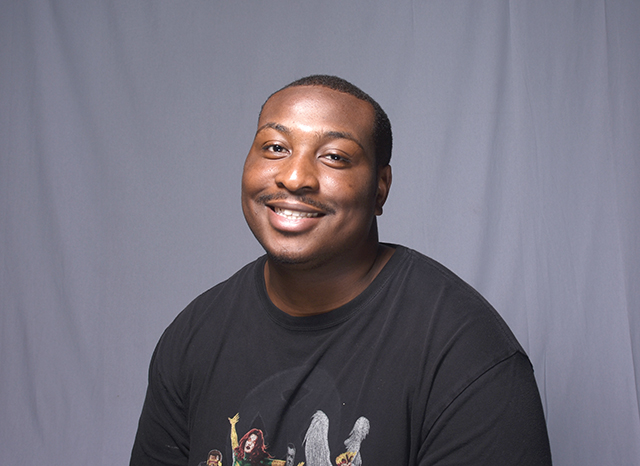Image from Creative Commons
Alright y’all, let’s talk about mental health. Over the past few years, mental health has become a more prevalent topic in society. Last year was particularly hard for some of us but NC State has now implemented some amazing programs to help with the mental health of students.
College is stressful for many students. We have to balance different roles in order to feel like we are not falling behind the rest of our peers. Finances, jobs, internships, clubs and a social life along with maintaining a good academic standing are all hard to juggle. All of these commitments can contribute to a students’ mental health.
The Suicide Prevention Resource Center said that “mental health problems can affect a student’s energy level, concentration, dependability, mental ability, and optimism, hindering performance. Research suggests that depression is associated with lower grade point averages and that co-occurring depression and anxiety can increase this association.”
I have personally noticed that my level of concentration and energy level has decreased since I started college. I need to take a nap almost every day to get through the day. I sat down to write this article at 7:30 p.m. It is now 11:07 p.m. and this is how far I’ve got. I’m pretty sure that most students can agree with me when I say that all I want to do is sleep and watch Netflix.
Across campus, you can see how mental health is affecting students. In my classes, students are not participating as much. Many students complain about the workload and how it is not negatively affecting their mental health.
My roommate, Arianna Ocasio, a second-year majoring in Biochemistry, had to drop one of her classes mid-semester because she could not understanding the material. The material was stressing her out to the point where she was in tears. Luckily, her advisor said she was able to drop the class. Regardless of having one less class, Arianna still does not feel like her workload was lightened.
Karis Price, a second year student getting her Masters in Clinical mental health counseling, said “academia is not conducive to mental health in general. The pressures and stressors can come from family, professors and work culture on top of having to pass the semester. We [students] are expected to be on go all the time and that’s not good for anyone’s mental health.”
Joseph Hairston, a second year majoring in Business administration said that balancing his classes and extracurricular activities has negatively affected his sleep. Joseph is on the Black Students Board and he is a Poole Ambassador, a secretary for the Black Business Association and an intern for Intrepid Marketing. He feels like balancing all this has taken away from his personal life.
Joseph struggles to find time to do things that he loves, like playing basketball and working out. The Kaiser Permanente said that “research shows that when you engage in interests you enjoy, you’re more likely to have lower stress levels, a lower heart rate, and a better mood.” Joseph had to cut back on some of his internship hours because he felt he wasn’t getting enough time to himself. Once he cut out some of the hours, he realized that his stress levels decreased and he was able to enjoy more of what being a college student entails.
Like Joseph, Karis and Arianna, many NC State students agree that balancing school, extracurriculars and a social life negatively impacts student’s mental health. The U.S. News said that “chronic and unhealthy levels of stress is at its their worst among college-age students and young adults. The American Psychological Association’s 2022 “Stress in America” report said that 46% of adults between the ages of 18-35 reported that “most days they are so stressed they can’t function.”
Take a look at the NC State community YikYak for example. One anonymous student said, “I love waking up with anxiety levels of a prey animal in the wild when my only plan today is to go to the library.” Another anonymous student said, “turning on my computer to see the damage from protecting my peace during fall break.” Another student said, “I must go, my people need me,” referring to the Chronic Illness and Mental Health communities on YikYak.
Midterms also did not help student’s mental health. Many students had multiple exams in one week. Some students even had two to three exams in one day. I am a Communication major so a majority of my exams happen to be in paper format. I had four papers due in two weeks. My anxiety was through the roof during these two weeks. At one point, I couldn’t even hold a conversation because I was so burnt out from overthinking and stressing out about my assignments.
Although students are struggling with their mental health, NC State has implemented many programs to help improve their mental health. One of these programs is Wellness Days. As we know, these days have been put aside to give students a breather day. Students are encouraged to not do any assignments on these days and prioritize their wellness.
Counseling for students is also encouraged. Centers like the African American Cultural Center (AACC) in the Witherspoon Student Center have drop-in times where students can speak to professionals and on-campus counselors about issues they may be facing. NC State’s Counseling Center encourages students to schedule appointments with them.
A new program, called the NC State University Faculty and Staff Assistance Program offers 24 hours, seven days a week counseling. The program offers confidential counseling, financial information and resources, legal support and resources, work-life solutions and guidance
resources online.
As a college student, it is important to know the resources available, especially when it comes to mental health. Take advantage of the resources. Believe me when I tell you, the counselors on campus are amazing and they can’t wait to help you. It is important to remember that you are not alone in this struggle.
Go to the Women’s Center, the LGBTQ Center (aka the Rainbow Room), the AACC and other centers on campus that have programs designed to help students improve their mental health. Attend on-campus events, but most importantly, have “me days.” In my opinion, “me days” are very important to one’s mental health. Take care of yourself!





